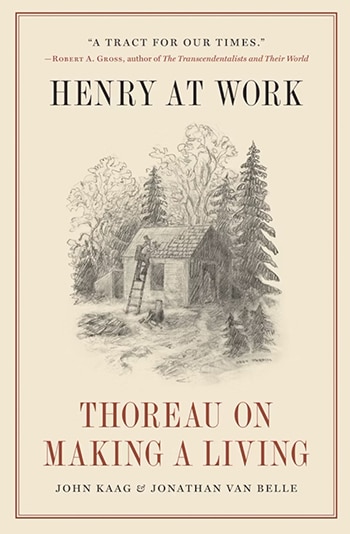We don't often think of work when we think of Henry David Thoreau. We think of Thoreau living with his family, or loafing around at a cabin at Walden, and mostly spending his days walking and enjoying nature. We know he did some writing, sure, but often think of him as being largely the abstract thinker type. But Thoreau was a man of much practical skill, who lived a life of both thought and action. He did lots of kinds of work — from carpentry to surveying to helping raise Ralph Waldo Emerson's kids — and thought a lot about the nature of work, both the paid variety and the kind that's necessary for simply sustaining day-to-day life. Today on the show, John Kaag, a professor of philosophy and the co-author of Henry at Work: Thoreau on Making a Living, shares some of Thoreau's insights on work with us. We discuss what Thoreau can teach us about the value of resignation, the importance of continuing to work with your hands to maintain what Thoreau called your "vital heat," what makes for meaningful work, and the trap of working in bad faith. We end our conversation with a call to consider what you're really being paid for in your job and the true cost of the things you buy.
We don't often think of work when we think of Henry David Thoreau. We think of Thoreau living with his family, or loafing around at a cabin at Walden, and mostly spending his days walking and enjoying nature. We know he did some writing, sure, but often think of him as being largely the abstract thinker type.
But Thoreau was a man of much practical skill, who lived a life of both thought and action. He did lots of kinds of work — from carpentry to surveying to helping raise Ralph Waldo Emerson's kids — and thought a lot about the nature of work, both the paid variety and the kind that's necessary for simply sustaining day-to-day life. Today on the show, John Kaag, a professor of philosophy and the co-author of Henry at Work: Thoreau on Making a Living, shares some of Thoreau's insights on work with us. We discuss what Thoreau can teach us about the value of resignation, the importance of continuing to work with your hands to maintain what Thoreau called your "vital heat," what makes for meaningful work, and the trap of working in bad faith. We end our conversation with a call to consider what you're really being paid for in your job and the true cost of the things you buy.
